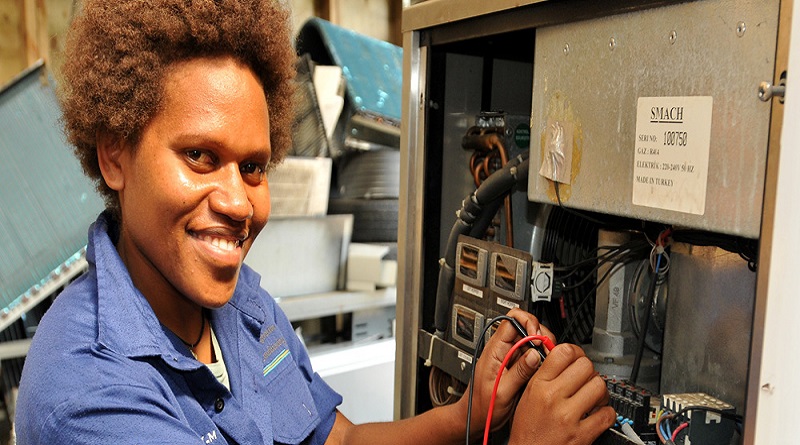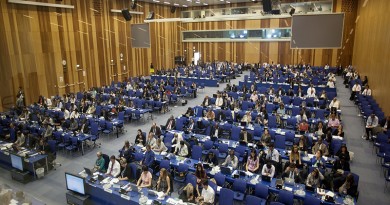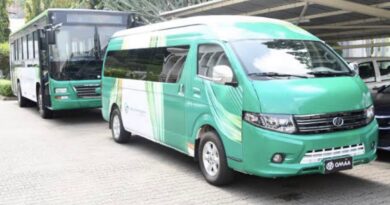Pacific Island women take up technician job, support ozone protection
In rare step to delve into the traditionally male-dominated refrigeration and air-conditioning (RAC) servicing profession, Pacific Island women are supporting national and global efforts to protect planetary and human health. Inspiring role models, they urge other women to “follow their dreams†and “to go for itâ€.
Ms. Akanisi Varani, a lecturer in RAC at the Fiji National University has a simple message for Pacific women.
“If we want to do anything, we should follow our dreams and aim high. We should follow our heart and our passion no matter what the challenges are so that we can reach our goal, “she says, recalling how she herself “climbed the way up†from a technician to becoming a lecturer.
Varani was one of women participants who attended the train-the trainer workshop on “Good Servicing Practices for Longer-term, Low-Global Warming Potential Alternatives in Refrigeration and Air-conditioning Sectorâ€, which took place in Suva, Fiji, June 2016. The workshop co-organized by the United Nations Environment Programme (UNEP) Ozone Action, in collaboration with the Fiji Ministry of Local Government, Housing, Environment, Infrastructure and Transport, European Commission, Fiji National University and Bundesfachschule Kälte-Klima-Technik (BFS) brought together 49 RAC technicians from 14 Pacific Islands .
Considering that ozone-depleting substances (ODS) are being phased out under the universally ratified Montreal Protocol on Substances that Deplete the Ozone Layer, the workshop focused on strengthening the capacity of the technicians to adopt and safely manage ozone- climate-friendly and energy-efficient alternatives .
Although Varani, has only a few female   students in her air-conditioning and refrigeration course in Fiji National University,   more young women are taking up engineering courses in the Pacific.
Ms. Madelyn Stolz, who comes from a family of technical professionals, was always enthusiastic about becoming an engineer and now she has an opportunity to make her dream come true. “I tell young ladies of the Pacific if they are really interested in something, they should go for it and not to hold back just because they are women. I believe that if you are interested, dedicated and motivated you can do this and any other job,†she says.
Ms. Makelesi Sauturaga was also inspired by her father, who was a mechanic. Although getting into the “male-dominant†RAC profession was a challenge for her, she managed to make it. “This is a male dominant profession, so I had to gain the respect of my co-workers,†she says.
She encourages other women who wish to take up the profession to “just give it a goâ€.
Women professionals in the RAC sector in the Pacific Islands are playing an important role in implementing the Montreal Protocol under which countries worldwide are taking specific, time-bound actions to reduce and eliminate the production and consumption of man-made chemicals that damage the ozone layer.
As an implementing Agency of the Multilateral Fund for the Implementation of the Montreal Protocol, (UNEP through its OzonAction Branch Compliance Assistance Programme (CAP) is helping developing countries sustain compliance with the Protocol.
“This workshop has been very useful for us. It has opened our eyes to new industry challenges such as energy efficiency management and reducing global warming,†says Stolz. “The workshop taught me how to safely use the new environment-friendly refrigerants, something that even seasoned male technicians do not know. My colleagues are very interested in what I have been learning and I am eager to share that with them.â€
Likewise, Varani commented that “I’ve learnt a lot about refrigerants and how they contribute to  global warmingâ€
Through its training  of RAC women technicians, UNEP OzonAction is also supporting gender equality-related goals under the 2030 Sustainable Development Agenda.




